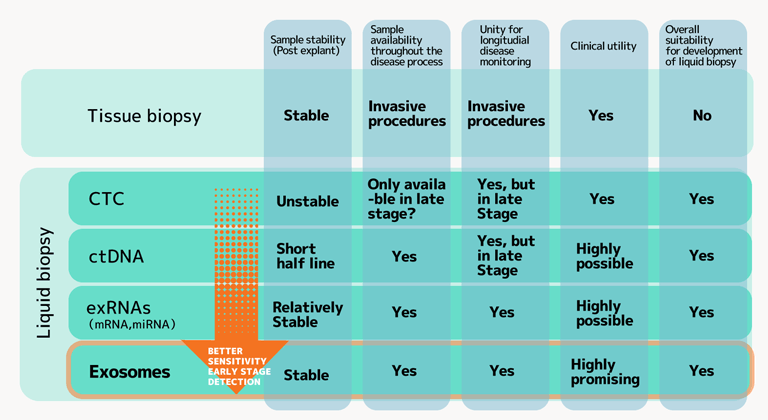WHAT WE DO - EARLY CANCER DIAGNOSIS -
Exosomes are a powerful tool for early diagnosis as they are secreted by the cells even in the early stages of the disease.
IMPORTANCE OF EARLY CANCER DIAGNOSIS
As of 2019, the leading cause of death in Japan continues to be "cancer".
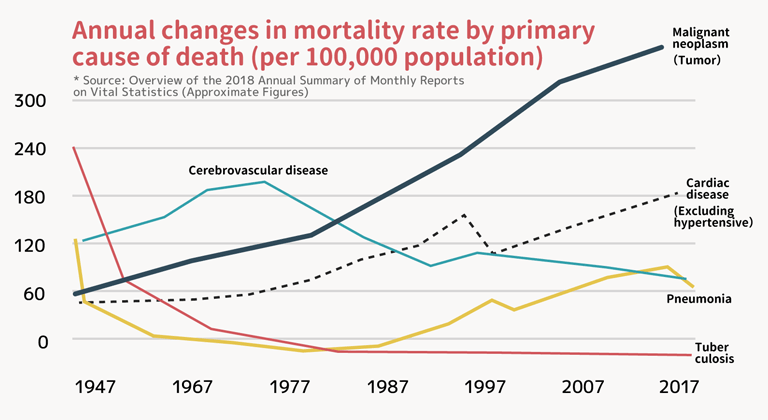
However, due to advances in diagnosis and treatment, early detection and early treatment are becoming possible for certain types of "cancer". With early detection, there is a high probability for successful treatment of "cancer".
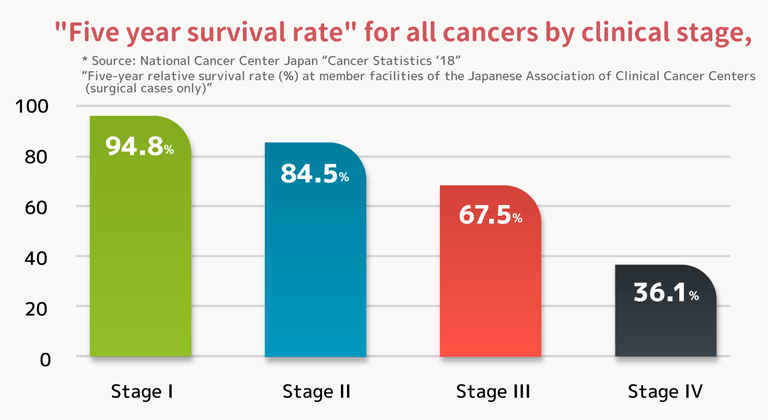
CANCER DIAGNOSIS WITH EXOSOMES
Exosomes contain proteins and nucleic acids that are specific to or highly expressed by specific tumors. Exosomes derived from cancer cells are thought to send exosomes to surrounding and distant cells to create an environment that is favorable for the survival and proliferation of cancer cells. The environment surrounding cancer cells changes markedly, but it is known that cancer cells sensitively change their state in response to these changes. As exosomes also respond to these changes within the cells, cancer can be detected in the extremely early stages by collecting and analyzing the exosomes in the blood.
The presence of exosomes has been confirmed in various body fluids such as the blood, urine, saliva, spinal fluid, and breast milk, and can be easily collected at the time of diagnosis compared with biopsies where tissues are sampled. As the cells actively secrete exosomes, even in the early stages of a disease, the disease-related cells secrete exosomes that can be used for early diagnosis. It has been indicated that exosomes contain different molecules depending on the cells they are derived from, and there are thought to be exosomes specific to each disease.
CANCER TYPES
Breast cancer, lung cancer, liver cancer, pancreatic cancer, esophageal cancer, gastric cancer, colon cancer, prostate cancer, bladder cancer, ovarian cancer, uterine cancer, cervical cancer, brain tumor, renal cancer, etc.
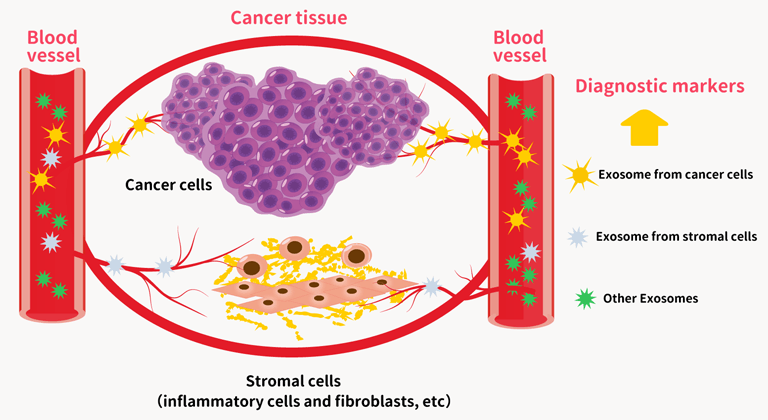
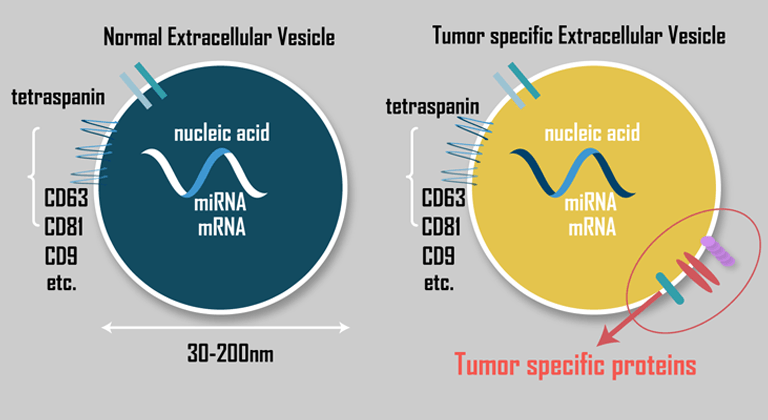
TYPES OF CANCER DIAGNOSIS: THE POSSIBILITIES OF LIQUID BIOPSY
Currently, various methods such as blood tests to check for the presence or absence of tumor markers and imaging tests such as X-rays and endoscopy are used for the diagnosis of cancer. However, with imaging tests, it is difficult to detect cancer cells until they are of a certain size, and a pathological examination that involves the surgical collection of tissues from the lesion, which is a considerable burden on patients, is required in order to make a definitive diagnosis. In this respect, as liquid biopsy is a test that uses the blood, the burden on patients is minimized. It is known that when cells become cancerous the composition of membrane proteins and glycans changes as well as the composition of their contents. The advantages of using exosomes for liquid biopsy are that early diagnosis is possible compared with the circulating tumor DNA contained in circulating tumor cells (CTC) or cell-free DNA that does not increase until the cancer progresses to a certain degree, and that it alleviates the burden on patients as it is much less invasive than conventional tissue biopsy.
